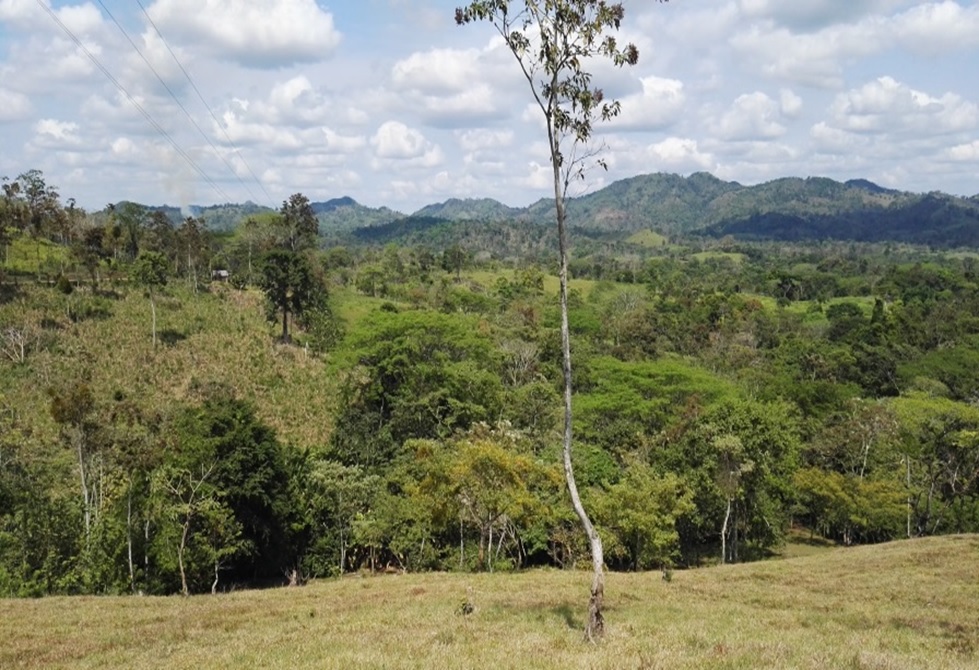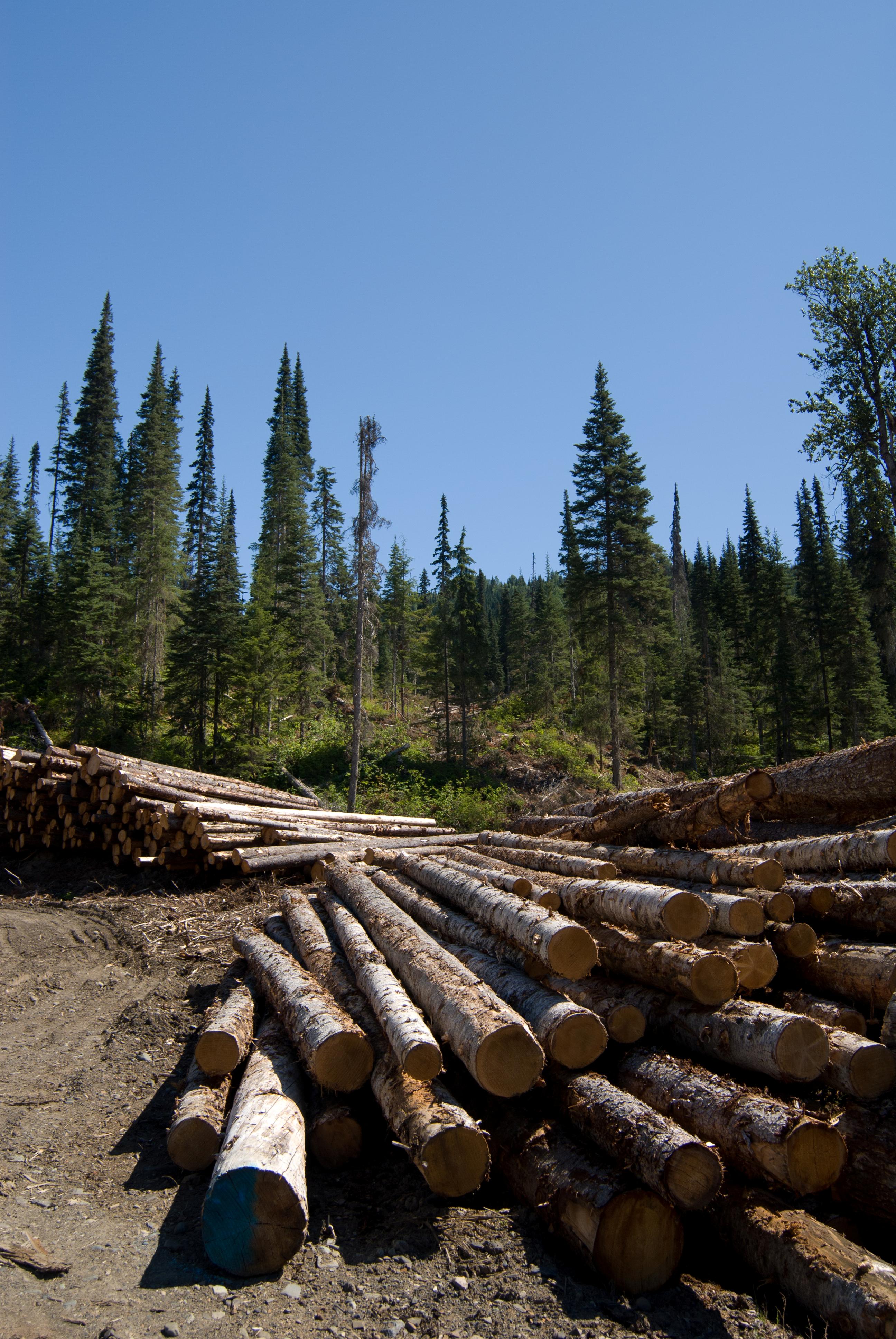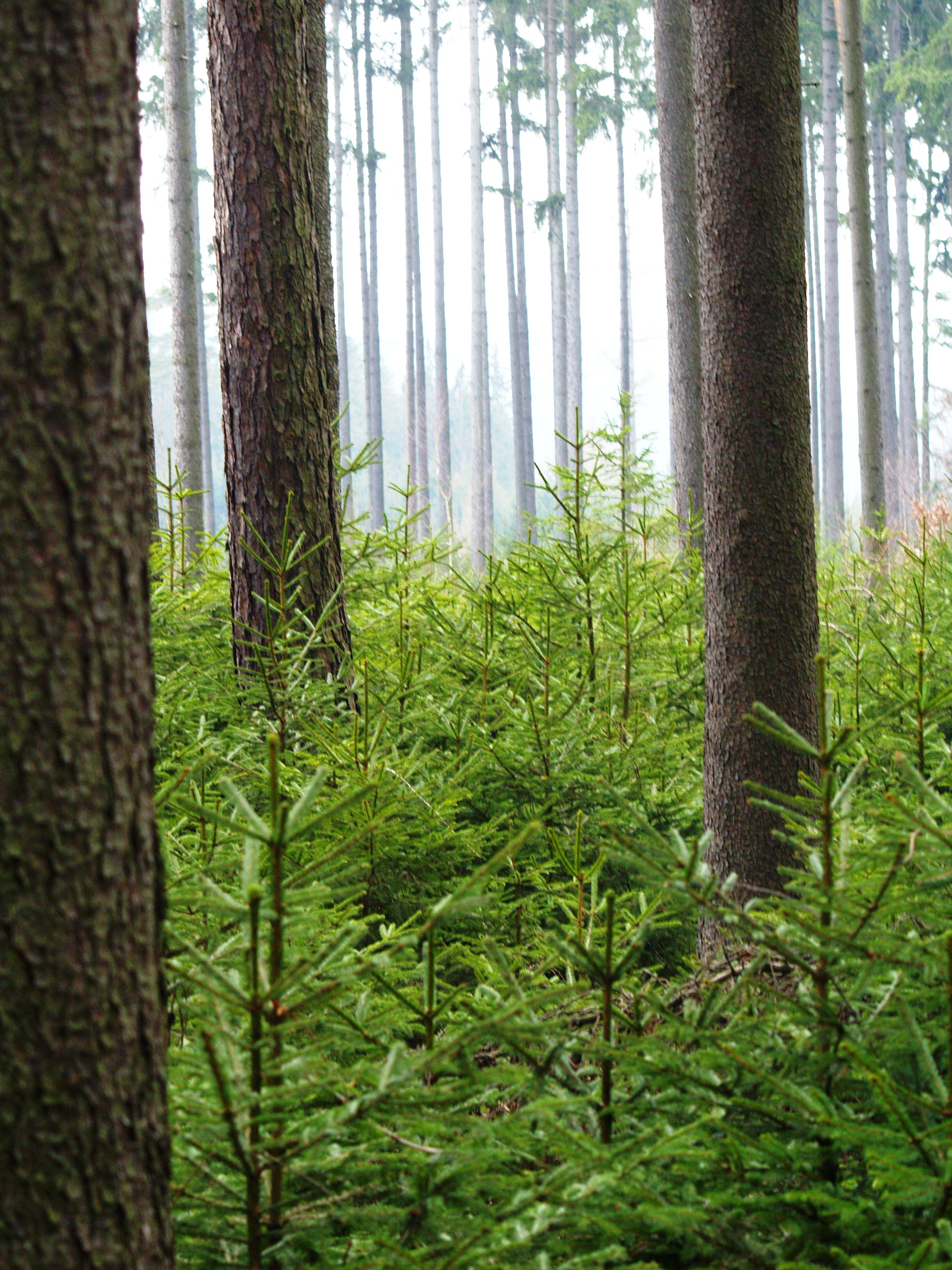2021 World Wood Day: Carbon Capture and Storage in Forests, Wood and Non-Wood Products
2021 World Wood Day: Carbon Capture and Storage in Forests, Wood and Non-Wood Products
Report by Hiromi Waragai, Dare to Explore! Trainee at IUFRO Headquarters

World Wood Day (WWD) is celebrated on 21 March every year in order to highlight wood as an ecofriendly and renewable biomaterial and to raise awareness on the key role wood plays in a sustainable world through biodiversity and forest conservation. Various physical activities such as children’s events, folk art workshop, an international woodcarving show, music performances, tree planting and woodturning demonstrations usually characterize the event. Due to the spread of COVID-19, however, 2021 WWD was celebrated fully online on the day with the traditional scientific symposium as main activity. The other activities will be spread over the entire year and presented via social media. IUFRO President John Parrotta offered a welcome address that can be watched here: World Wood Day 2021 Welcome Message from IUFRO President Dr. John Parrotta – YouTube
Read more…IUFRO Spotlight #67 – Tapping the potential of restoring disturbed tropical forests
IUFRO Spotlight #67 – Tapping the potential of restoring disturbed tropical forests
Since the 1980s most deforestation globally has occurred in tropical countries – Africa, South America and Asia. The high rate of deforestation and degradation contributes to the disappearance of 13 million hectares of tropical forests each year.

World Wood Day – Celebrating “Wood is Good” by Cultural Approach
World Wood Day – Celebrating “Wood is Good” by Cultural Approach
 Report by Howard Rosen, Coordinator of IUFRO Working Party 5.10.01 Wood Culture, http://www.iufro.org/science/divisions/division-5/50000/51000/51001/ , and Andrew Wong, Deputy Coordinator of IUFRO Division 5 Forest Products, http://www.iufro.org/science/divisions/division-5/50000/ .
Report by Howard Rosen, Coordinator of IUFRO Working Party 5.10.01 Wood Culture, http://www.iufro.org/science/divisions/division-5/50000/51000/51001/ , and Andrew Wong, Deputy Coordinator of IUFRO Division 5 Forest Products, http://www.iufro.org/science/divisions/division-5/50000/ .
How would you like to go the a celebration with people from 93 countries, including wood carvers and turners making art pieces, musical groups playing wooden instruments, tree planting to improve the environment, talks on how the use of wood has affected people’s lives throughout history, and other entertainment such as folk dancing and puppeteering? Well one just occurred in Odunpazarı District of Eskişehir, Turkey, from March 6-31, 2015 with over 400 attendees. Read more…
A changing forest sector: Globalization triggers bio-economy and the search for new business opportunities
Scientists, practitioners and decision-makers from around the world meet in Vancouver, Canada from 27 to 30 August 2013 to discuss the implications of globalization on forests and their management.
PDF of Press Release for download
(Vancouver/Vienna, 27 August 2013) Globalization is changing forests and the forest sector. Increases in international trade and investments have altered the global business environment for forestry. The growing world population moving towards nine billion by 2050, economic growth, rising resources demand and increasing environmental concerns are other drivers fostering transformation in forestry and the management of forests. New players enter the global market, and the bio-economy –– the production of ‘green’ products from renewable resources –– is gaining weight. From 27 to 30 August 2013, more than 100 representatives from research, industry and government will discuss how global trends influence forest resources, and how new opportunities for forest entrepreneurs and a more resource efficient society can be harnessed. The Conference has been organized by the University of British Columbia (UBC), Faculty of Forestry, on behalf of the Task Force “Resources for the Future” of the International Union of Forest Research Organizations (IUFRO).
Forests are a Path to Sustainable Development
13 May 2011, New York – As discussions draw to a close at the UN Commission on Sustainable Development (CSD) in UN Headquarters this week, members of the Collaborative Partnership on Forests (CPF), an international mechanism composed of 14-forest related organizations and secretariats, are calling upon countries to pay more attention to the crucial contribution of forests to sustainable development.
Members of the CPF are working to improve management, conservation and sustainable development of all types of forests. Sustainably managed forests contribute directly to poverty reduction by providing jobs, incomes, and consumable goods for poor families.
“At a time when we are faced with environmental, social, and economic crises that are daunting; the CPF is working intensively together to further catalyze the positive contributions of forests, including the livelihoods of forest-dependent people, as is being celebrated in 2011, the International Year of Forests.” says Jan McAlpine, Director of the United Nations Forum on Forests Secretariat. “Forest services and benefits are multifaceted and wide-ranging, from the environmental contributions to the social and economic. Cross-sectoral and cross-institutional cooperation and a people-relevant approach is vital not only to management of forests but for advancing sustainable development around the world.”
“Further analysis is needed during the International Year of Forests, to emphasize the connection between people and forests, and the benefits that can accrue when forests are managed by local people in sustainable and innovative ways” says Eduardo Rojas-Briales Assistant Director-General of the FAO Forestry Department. “Together we must continue to pursue multiple pathways towards sustainable development using forests at all levels.”
Rojas called attention to the 2011 edition of FAO’s State of the World’s Forests, which provides an analysis of how forests support people’s livelihoods and the development of sustainable forest industries. According to the report, forest industries are improving resource efficiency and recycling efforts and are making progress in promoting wood products as more environmentally friendly than alternative materials. Moreover, State of the World’s Forests 2011 indicates that community-based and traditional knowledge forest management approaches can help communities harvest and sell non-wood forest products to create more sustainable livelihoods.
The relevance of traditional forest-related knowledge and practices to global efforts to advance sustainable forest management, biodiversity conservation, adaptation to environmental change, and livelihood security is highlighted by a 6-year global study that has recently been completed by the International Union of Forest Research Organizations.
Emmanuel Ze Meka, Executive Director of the International Tropical Timber Organization noted that “Already in many tropical countries, sustainably managed forests and the products that arise from them are contributing to sustainable development at both the national and especially at the community level. But since sustainably managed forests still make up less than 10% of the total global tropical forest area, they clearly have the potential to play a much bigger role.”
A successful example of sustainable forest management can been seen in Guinea, where the Landscape Management for Improved Livelihoods (LAMIL) project by the World Agroforestry Centre and the Centre for International Forestry Research has had a profound influence on the sustainability of four large forest areas. Prior to the project, local people were forbidden from using the forest resources and illegal logging, poaching and land clearance were leading to forest loss. The LAMIL project developed a system of co-management involving local communities and government where the local people derive real benefits from the forests, and in return have shown their willingness and ability to manage them sustainably.
“The project illustrates how changes in how forests are governed can lead to win-win outcomes for forests and people,” commented Frances Seymour, Director General of the Center for International Forestry Research. “This project has done much to improve the welfare of the local people,” said Dennis Garrity Director General of the World Agroforestry Center. “It has also shown that sustainable forest management and improved livelihoods are inextricably linked.”
“Forests, soils and water are a trilogy that are not stand-alone, self-sustaining resources” says Luc Gnacadja, Executive Secretary of the United Nations Convention to Combat Desertification. “To foster a holistic approach to the management of these environmental resources, we must attend to three things. First, we need to focus on the causes, not the symptoms of deforestation. Second, we also need to focus on the soil, which is the real source of life for the land. Third, the communities that maintain the ecosystems we depend upon need to be rewarded.”
At the recent United Nations Forum on Forests (UNFF) meeting in February, ministers and high officials agreed on a Ministerial Declaration which stresses that “forests are an integral part of the global environment and human well-being, providing multiple goods and services essential for people worldwide and crucial for sustainable development and the achievement of the internationally agreed development goals, including the Millennium Development Goals.” The UNFF Ministerial Declaration contains the most important global forest policy issues and concerns as the concrete input on forests to the upcomingRio+20 conference. Rio+20 (June 2012), marks the twentieth anniversary of the adoption of Agenda 21, the blueprint for sustainable development, agreed upon at the 1992 United Nations Conference on Environment and Development. The conference will review progress made towards sustainable development and map out future strategies to address sustainable development and environmental challenges.
For more information:
Gerda Wolfrum, wolfrum(at)iufro.org, International Union of Forest Research Organizations (IUFRO)


